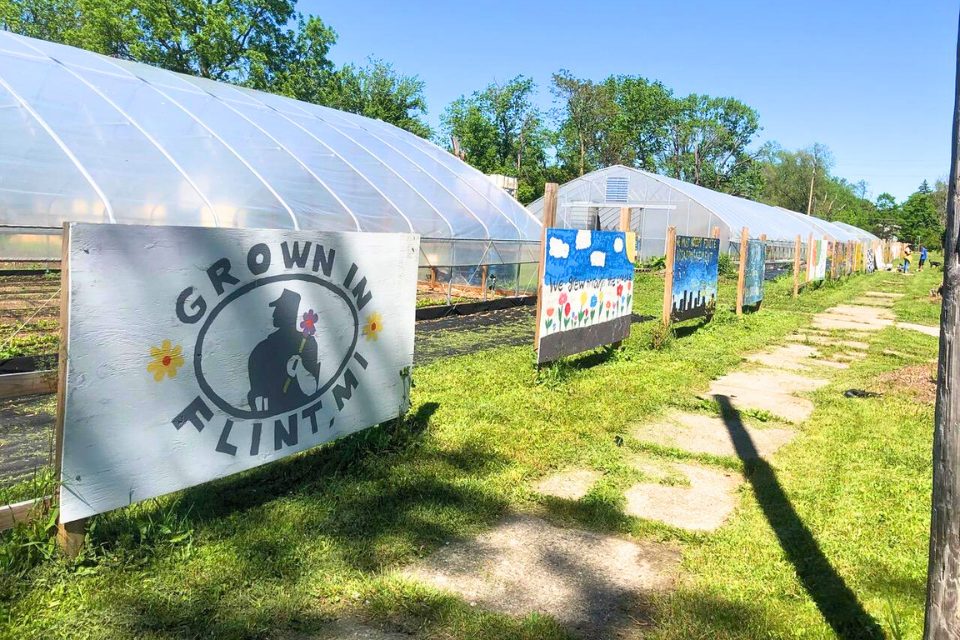Asbury: Flint UMC and Charlevoix: Greensky Hill UMC were awarded $100,000 Sacred Spaces Clean Energy Grants to make their facilities more energy efficient.
GLENN M. WAGNER
Michigan Conference Communications
Asbury United Methodist Church in Flint and Greensky Hill United Methodist Church in Charlevoix are two of the 11 faith communities in Michigan to receive a $100,000 Sacred Spaces Clean Energy Grant from the State of Michigan and World Renew.
The grants have been awarded to congregations making a huge difference in serving human needs within minority populations. The grants will help the congregations pay for energy-saving improvements to their buildings so that more of their operating funds may be utilized for vital community services.
Feeding Body and Soul in Flint
The Rev. Dr. Tommy McDoniel, pastor of Asbury UMC since 2010, knows what a godsend this grant will be for the vital ministry his congregation and related nonprofit carry out daily in the midst of an urban setting in Flint, MI.
Flint: Asbury UMC has been on the front lines providing needed services in a city that in recent years has endured the loss of 88,000 automotive jobs and a nationally publicized water crisis exacerbated when state-mandated cost-saving measures caused the leaching of lead from pipes to pollute the city water supply. The consequences of a global pandemic made ministering to a community dealing with these urgent concerns even more challenging.
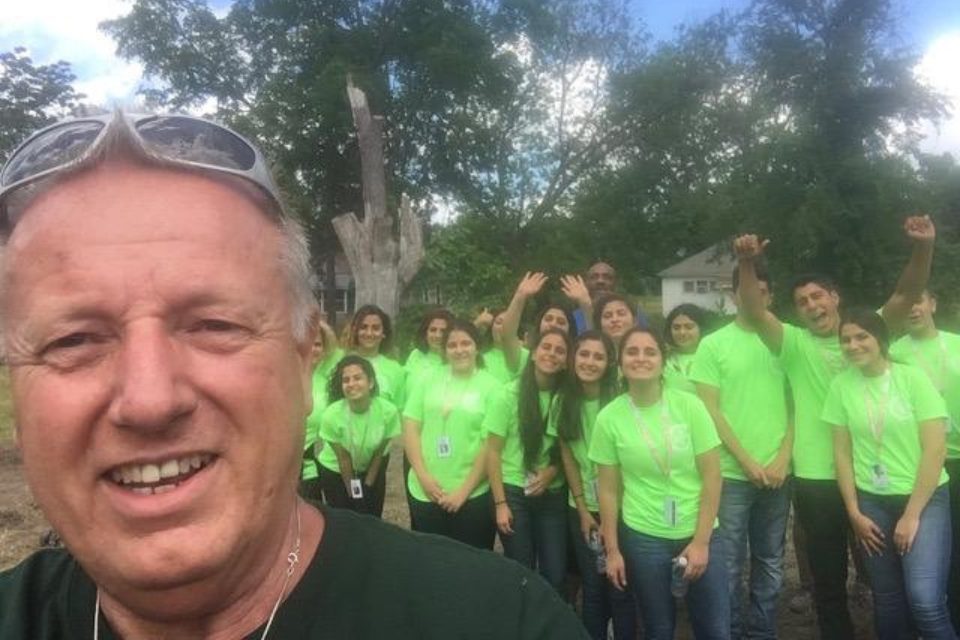
According to McDoniel, Flint: Asbury UMC went through the self-examination of the Michigan Conference-sponsored Vital Church Initiative (VCI) program and streamlined its leadership structure. To better meet the needs of their community, Flint: Asbury also began a nonprofit 501(c)(3) corporation in 2011 named the Asbury Community Development Corporation (CDC).
This related nonprofit operates Asbury Farms, a ministry in the neighborhood that has turned 50 nearby vacant urban lots into agricultural land on five campuses to grow fresh fruit and vegetables for feeding residents in an area that had become a food desert. Asbury Farms has erected 16 hoop houses on these lots to enable year-round growing. The farms are staffed by local volunteers and visiting mission teams from across the country. The Asbury CDC also employs 40 to 50 youth during the year as part of a seed-to-table job training program in partnership with the chamber of commerce and other youth organizations in Flint. Most of the food grown is given away to help feed hungry neighbors, but according to McDoniel, 30% of the produce is sold, which helps to fund the farming ministry.
The Asbury CDC was established with four clear goals:
-
- To be a center for connections, partnering with others in their community to help foster connections with the earth, God, each other, and mental health resources. The goal of connecting is for people to find wholeness and self-love. They also teach and encourage spiritual disciplines.
- To be a center for health, wellness, and literacy. The Asbury CDC operates in three (and soon to be four) locations and hosts 40,000 visits a year with the help of 15 to 20 volunteers who have been serving the CDC each week for the past five years. During the height of the Flint water crisis, with the help of another grant, the Asbury CDC had 22 full-time employees engaged in making regular water deliveries to 1,500 households.
- To be a center for spiritual growth.
- To be a financially sustainable ministry.
This year’s Sacred Spaces grant will help Flint: Asbury UMC and its ministries lower energy costs and reduce their carbon footprint. It will assist the church in investing in energy-efficient lighting and heating. An inefficient boiler used to heat the church needs to be replaced. Financial savings from these improvements will be redirected to addressing human needs in ministry.
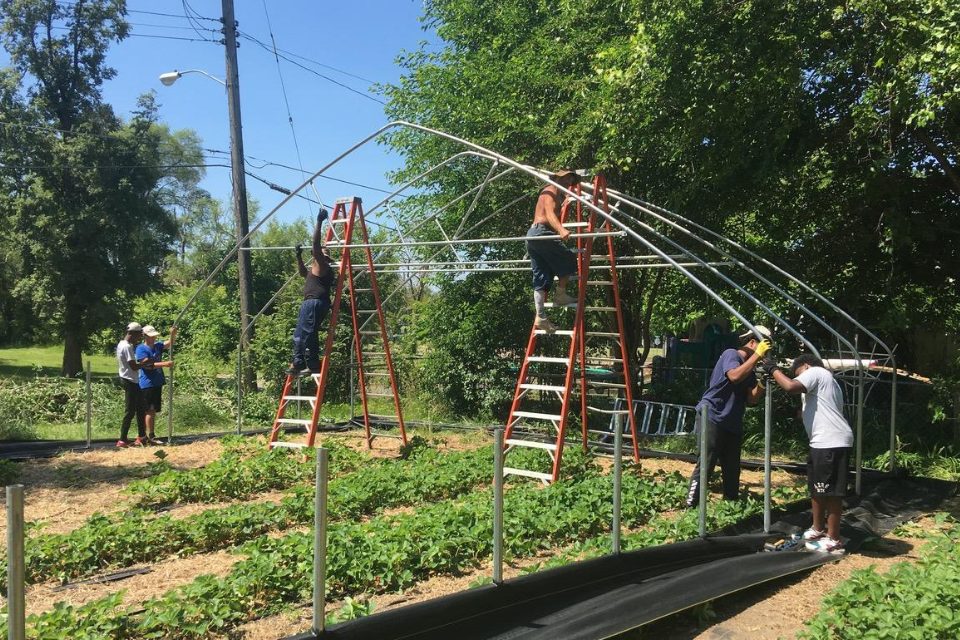
McDoniel is grateful to all those who have helped the church get the grant and whose influence and support continue to sustain the church’s ministries. This includes former Flint Mayor Dayne Walling, who first noticed the grant and assisted the congregation in completing the application. Michigan Governor Gretchen Whitmer and Lieutenant Governor Garlin Gilchrist II have visited the ministries and supported their efforts. The Charles Stewart Mott Foundation, located in Flint, has also recognized the importance of the ministries and offered valued support.
McDoniel is especially grateful for the service and leadership provided to the church and the Asbury CDC by the faithful laity of his congregation, his gifted church staff, and many volunteers who labor daily to keep the church and Asbury CDC running, faithfully serving Christ in ministry.
A special feature of the clean energy grant is that the grant funder handles all fiduciary and management responsibilities. This frees Asbury: Flint UMC from handling the grant administration and ensures that payments are made only to qualified vendors for approved energy efficiency upgrades.
Caring for Sacred Land in Charlevoix
Greensky Hill United Methodist Church has also been selected to receive a $100,000 grant for making energy-efficient improvements to their historic building, which dates to the 1850s.
Pastor Jonathan David Mays has served at Greensky Hill Indian United Methodist Church near Charlevoix for ten years. Greensky Hill Indian Mission UMC is a majority Native American congregation with significant congregational ties to the Anishinaabek from the Three Fires Confederacy, an alliance of the Odawa (Ottawa), Chippewa (Ojibwe), and Pottawatomi (Bodewadmi) tribal nations. The Greensky Hill congregation also contains heritage Indians who have Native American ancestry but are not from federally recognized tribes.
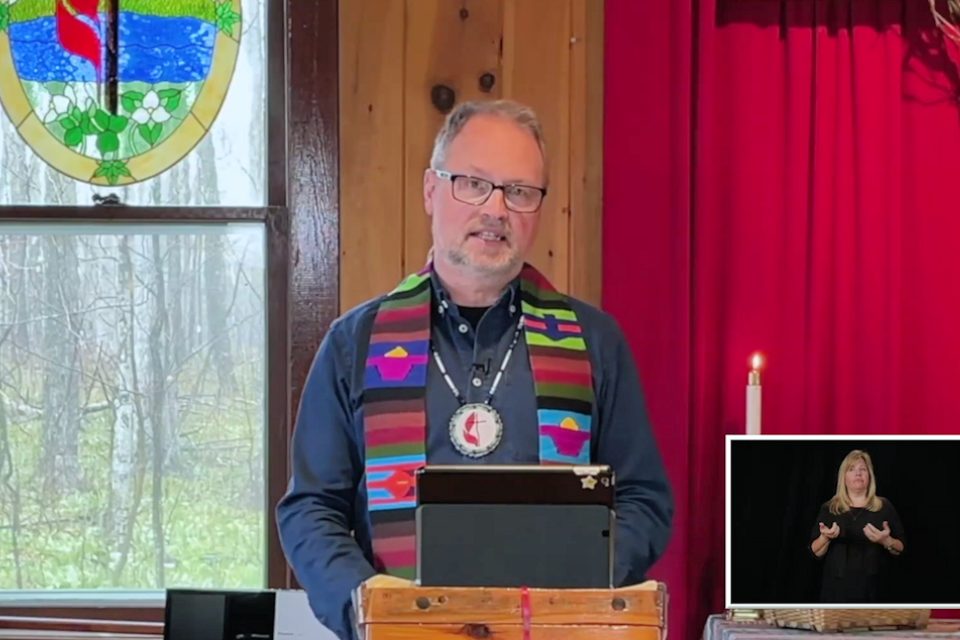
Mays is profoundly grateful for his congregation and its ministry but also that this grant fits perfectly with Greensky Hill’s core values, including a commitment to creation care and the greening of the environment.
The church was already moving toward replacing its increasingly expensive liquid propane heating system and hopes, with the help of this grant, to upgrade its facilities with all LED lighting and seal the existing window to prevent heat loss in cold weather. The church also hopes to move toward using solar energy to provide future energy needs.
Energy savings will be used to enhance community ministries at Greensky Hill. Mays affirms the congregation’s goal to be a center for radical inclusion, accessible and welcoming for all persons. The congregation is also committed to protecting and caring for the sacred land around the church, including their worship and fellowship spaces, a cemetery, and a sacred circle of trees planted long ago as a commitment by area tribal groups to live together in peace for as long as the trees stand. Finally, the congregation is also committed to being an Anishinaabek cultural center.
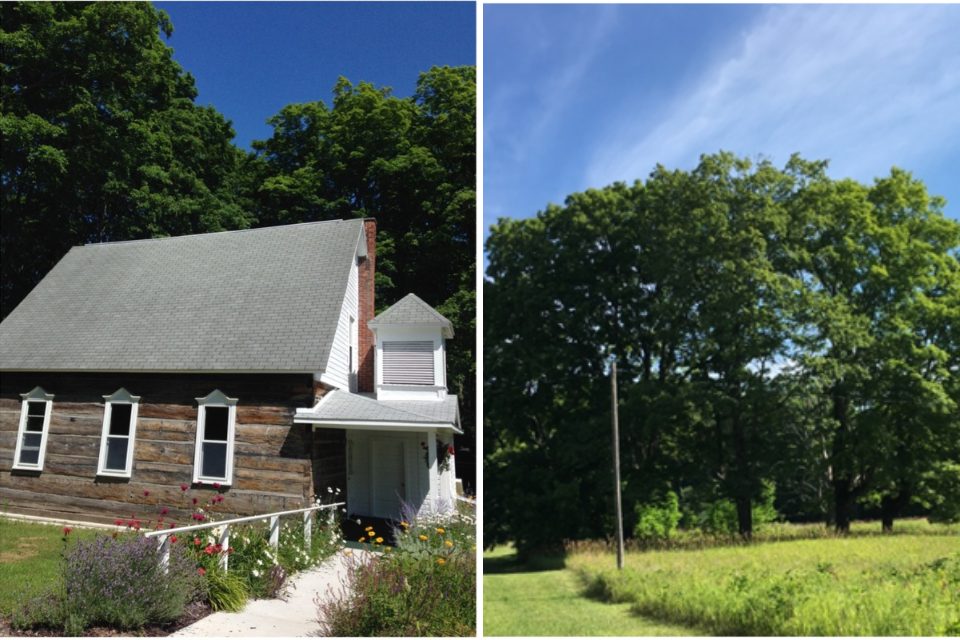
Mays is grateful for all those in the community and his congregation whose work and witness helped secure the grant for this congregation that serves people in a three-county area. He knows that Greensky Hill has values and a mission to serve others that are perfectly in line with the grant’s aims. He is praying that Greensky Hill remains a deserving recipient of this wonderful gift and will be a model for other congregations who need energy improvements so they will have more resources available for ministry.
Making Energy Conservation Available to All
The energy conservation grant program results from a collaboration of organizational partners seeking to make a difference with strategic assistance.
World Renew, an international disaster response and community development nonprofit organization, in partnership with the Climate Witness Project, formed a committee that selected the honorees and chose the nonprofit Michigan Interfaith Power & Light (Michigan IPL) to lead the grant.
Founded in 2002, Michigan IPL was formed by a diverse group of faith leaders wanting to make a difference in encouraging creation care as a priority for people of faith. They offer practical ways to put faith into action by promoting energy efficiency, renewable energy, and other sustainable practices that lead to a cleaner, healthier, and more just world. Read more about the values that shape their mission on their website.
Jennifer Young is the Energy Program Manager for Michigan IPL. Jennifer explained that the Sacred Spaces program selected 11 Michigan faith communities from the 65 that applied to receive $100,000 green energy grants. Project partners include Michigan Interfaith Power & Light, World Renew, the Climate Witness Project, EcoWorks, the Michigan Department of Environment, Great Lakes, and Energy (EGLE), and the U.S. Environmental Protection Agency.
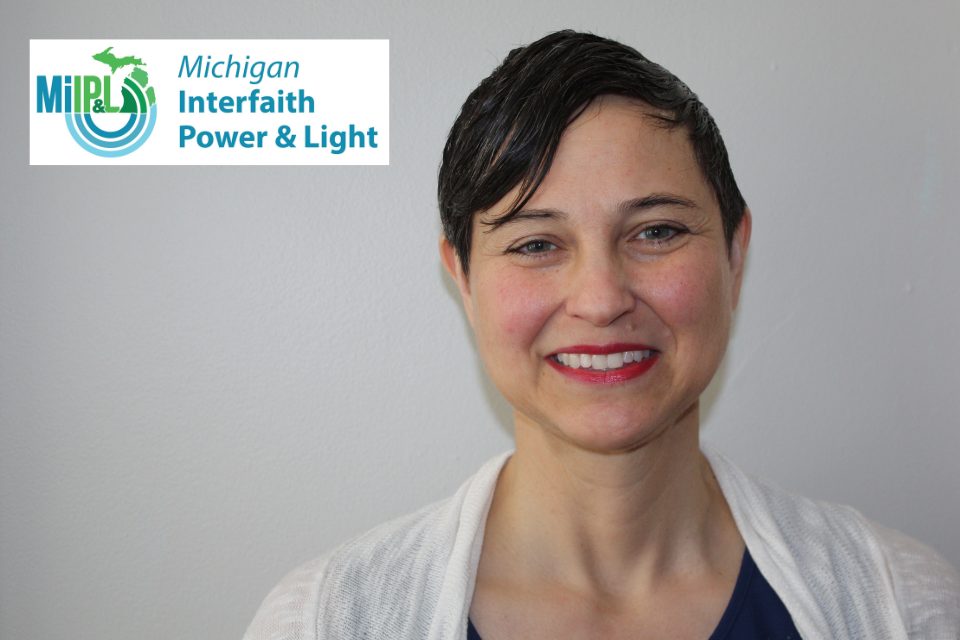
The 11 grant recipients are:
-
- Greensky Hill Indian United Methodist Church, Charlevoix
- Holy Trinity Lutheran Church, Chassell
- Muslim Center Mosque and Community Center, Detroit
- Pilgrim Baptist Church, Detroit
- New Mt. Hermon Baptist Church, Detroit
- St. Peter’s Episcopal Church, Detroit
- St. Suzanne Our Lady Gate of Heaven Catholic Parish, Detroit
- Asbury United Methodist Church, Flint
- Trinity Reformed Church, Grand Rapids
- Allen Chapel AME Church, Kalamazoo
- St. Luke CME Church, Saginaw
The congregations were selected by a committee of representatives from Michigan IPL, the Michigan Department of EGLE, World Renew, the Climate Witness Project, NAACP–Grand Rapids Chapter, and the Michigan Governor’s Office of Faith-Based Affairs. This opportunity was available to congregations:
-
- from any religious tradition,
- located in Michigan,
- with an annual budget under $250,000, and
- whose ministries serve their broader communities.
In addition, the committee sought to choose a slate of congregations located in different regions of Michigan and that represented a diversity of racial and faith identities. Priority was given to congregations located in communities experiencing disproportionate environmental harm.
Young explained that Michigan IPL administers other ongoing grant programs in support of congregations seeking to improve energy efficiency for the sake of the environment and lowering utility bills. Light the Way is a free energy assessment program open to any church that uses Consumer’s Energy electric or gas service and owns its building. Carbon Fund Mini-Grants provide grants of $500 to $5,000 to congregations in economically disadvantaged communities to implement climate pollution-reducing projects.
EcoWorks is a Detroit-based nonprofit with over forty years of experience providing services at the intersection of community development and sustainability. Michigan IPL selected EcoWorks to provide technical analysis and support the Sacred Spaces awardees in evaluating and selecting energy-efficiency projects. EcoWorks’ Strategic Community Initiatives team brings experience working with municipalities, nonprofits, and public organizations to reduce energy costs and advance decarbonization efforts as a third-party, impartial advisor. EcoWorks will serve as an owner’s representative to ensure selected projects achieve energy, financial, and environmental benefits for the Sacred Spaces awardees and their communities.
EcoWorks would like to credit Michigan IPL, World Renew, and the Michigan Department of EGLE for their leadership in providing funding for this program.
Although no additional Sacred Spaces Clean Energy Grants are available at this time, congregations interested in learning more about making energy improvements to their facilities are encouraged to reach out to Jennifer Young, Energy Programs Manager with Michigan IPL, at 248-463-8811 or [email protected].
Last Updated on October 31, 2023

